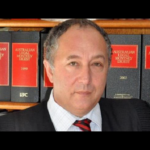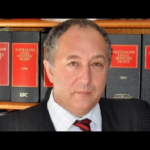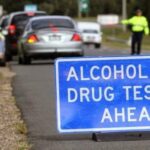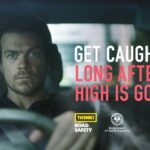The Need for a Medicinal Cannabis Driving Defence: An Interview With Former Magistrate David Heilpern

The NSW government introduced the state’s much maligned drug driving laws in 2007. The regime criminalises any trace of the psychoactive component of cannabis, THC, in the system whilst driving. The federal government, however, legalised the use of medicinal cannabis in 2016.
This inconsistency in law – the penalising of citizens for driving with a legally prescribed drug in their system – continues.
Indeed, rather than legislate to make it legal for those who lawfully use cannabis medicines and drive, the Berejiklian government instead doubled the number of roadside drug tests to 200,000 annually two years after the use of the medicine was permitted.
But this isn’t the case in all jurisdictions. Tasmania police confirmed this month that whilst cannabis driving is illegal down there, the law recognises medicinal cannabis as a prescribed drug and, therefore, a person who has traces of it in their system when driving has not committed an offence.
Launched this month, the Drive Change campaign is pushing for nationwide recognition in law that drivers who use cannabis medicines aren’t committing an offence in a similar manner to the way that those who use other prescribed drugs aren’t breaking the law when driving.
A flawed regime
The criminalisation of those being prescribed with cannabis medicines is simply the most obvious flaw in the NSW drug driving regime.
Unlike random testing for alcohol, which uses scientifically proven methods to ascertain whether a person is too drunk to drive, drug driving laws don’t check for impairment, but rather test for mere traces of just four illicit substances in a person’s saliva: cocaine, amphetamines, MDMA and THC.
All of these substances continue to stay in a driver’s system long after intoxication wears off. And what this means is that much of the time that NSW police officers are charging citizens with drug driving, they’re not impaired, so they pose no danger to others on the road.
Some may say it serves a driver right to lose their licence for using illicit drugs, as they’ve broken the law regardless. However, drug driving laws are supposed to be about improving road safety, and, at present, they’re simply being used as a backdoor means to enforce the war on drugs.
Drive Change points out that there is no evidence that drug driving laws, as they’re enforced now, “have reduced the road toll at all in any jurisdiction in Australia”. And this is in stark contrast to the evidence available around random breath testing and seatbelts.
Judicial authority
Director of Drive Change David Heilpern understands the unfairness of these laws all too well. The former NSW magistrate has long been a vocal critic of these laws, even before he gave up the gavel.
Whilst presiding over Lismore Local Court, Heilpern made a number of ground breaking rulings in favour of those wrongfully caught up under these laws, which included finding a driver not guilty of cannabis driving after being satisfied he hadn’t consumed the drug for nine days prior to testing positive.
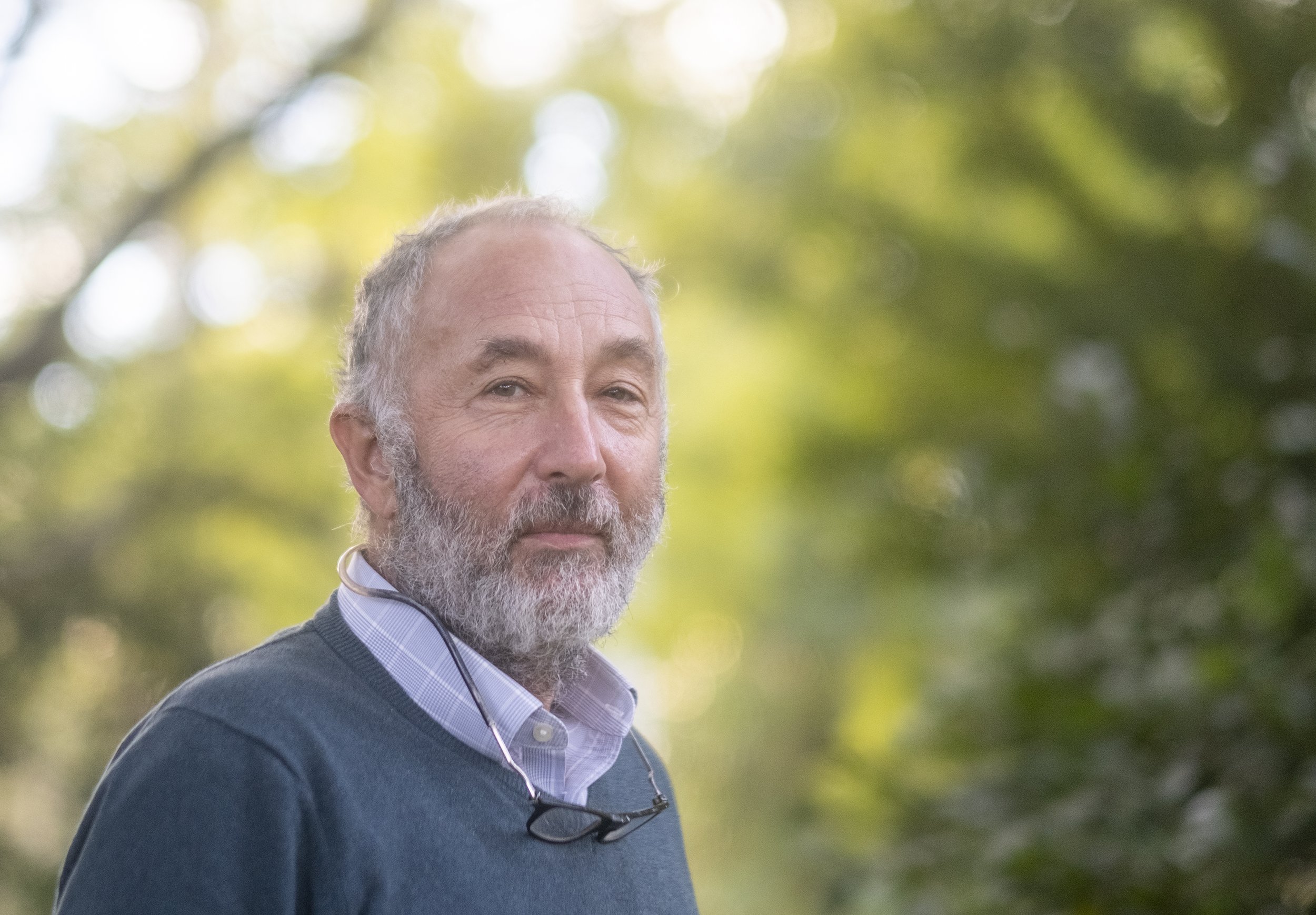
Sydney Criminal Lawyers spoke with former Magistrate Heilpern about the impact that criminalising drivers who use cannabis medicines is having, the need for a medicinal cannabis driving defence, and whether there’s a political will in NSW to bring about this reform.
In the first half of 2020, you retired from your position as a NSW magistrate. In June last year, you began speaking out against this state’s drug driving laws.
Now you’re the director of the Drive Change campaign. It has a focus on changing NSW drug driving laws in relation to the criminalisation of medicinal cannabis patients.
Mr Heilpern, there are many problematic aspects to the NSW roadside drug driving regime. Why focus on medicinal cannabis?
The real reason is that it’s the low-hanging fruit of this campaign. It’s impossible to argue why those using cannabis on prescription should be criminalised for driving. I’ve yet to see anyone convincingly argue that.
Always with recreational cannabis users, they can say it’s illegal. But they can’t say that with medicinal cannabis users who are using according to their prescription.
Also, it’s a no-brainer. Tasmania has laws that permit those who are using cannabis by prescription to drive. So does England, Scotland and Ireland. The EU does. Many states in the United States do. And so does Canada.
We are real outliers in this regard. And it was our view that this was the most obvious place to start.
In terms of what’s wrong with drug driving laws, the principal thing is they just don’t work.
When they introduced 50 kilometre an hour speed limits, random breath testing for alcohol and a whole range of other road safety measures, you could see a discernible drop in the road toll, both deaths and injuries.
In this case, there’s 200,000 tests – probably half a million plus around the country – and yet there has been no discernible drop in road trauma as a result.
That is just a ridiculous waste of public money. All pain, no gain.
Your decision to retire was partly based on the influx of people coming into your courtroom as a result of being charged with drug driving offences.
From what you’ve seen in the courtroom, what impacts are drug driving laws having in relation to those who use medicinal cannabis?
It’s absolutely tragic. There is no defence for having a prescription or using medicinally, so it means that a whole range of people are caught up in these silly drug driving laws.
Most people who use cannabis medicinally use it at least once every 24 hours, whether by tincture or by smoking, vaping or drops.
So, what happens is they’re permanently driving with discernible levels of THC in their system, even though they’re not driving under the influence, in terms of being affected.
What that meant was, when I was sitting on the bench, I was taking people’s licences from them, destroying their lives, making them lose their employment, lose their houses and it was affecting their relationships.
This is particularly harsh for those in rural and regional areas, where there’s no public transport alternatives, for what was clearly them being no additional risk to the community at all.
If they were driving under the influence – if they were affected – then they would have been charged with that offence.
Since this state’s drug driving regime came into existence in 2007, cannabis has been captured by it. When medicinal cannabis use was legalised in 2016, the authorities were aware of this inconsistency, but they’ve done nothing about it.
What sort of evidence is out there in relation to the effect medicinal cannabis use has on driving? And what does it tell us?
What it tells us is that certainly, within a number of hours, there’s no adverse impact. And when I say hours, I mean a maximum of four hours.
So, what the law should be is that if you are driving under the influence, in the sense of being affected, then, of course, you should be prosecuted.
If you’re driving with a detectable level of five nanograms, then you shouldn’t be prosecuted. We simply should catch up with the rest of the world in this regard.
In particular, those who have a prescription and are using it in accordance with it should have a defence provided they’re not weaving all over the road and are a danger to the community.
You’ve just touched on the next question, but what sort of reforms do you want to see to these laws when it comes to cannabis medicine in particular? How can medicinal cannabis be taken out of the equation?
If people are apprehended, and if people have a detectable level of THC in their system, then they should be able to show their medical certificate and have a defence.
That defence is that they have a prescription and are using it in accordance with that prescription, therefore they weren’t driving under the influence in the sense of being adversely affected. That should be the defence.
That way the police can exercise their discretion because they wouldn’t have reasonable prospects of success in court.
If someone shows them the prescription on the side of the road, they can refer it up for there to be a decision not to prosecute on the normal prosecutorial principles, as there is a valid and available defence.
So, ideally, those people would never get to court. And if they did, they would have a defence to the charge. That would update us with the rest of the world and would be a start with reform in this very important area.
I should say that also in terms of increasing road safety, what would happen then is that people would stop using opioids, barbiturates and other drugs that really do have an adverse effect on their driving even though detectable levels aren’t a defence.
Drive Change is being run by the Cannabis Law Reform Alliance. Can you tell us about the organisation?
Drive change is a loose collection of people under the umbrella of the Cannabis Law Reform Alliance, who are committed to change.
If you have a look at the Drive Change website, you can see who the board are and who the ambassadors are.
They make up a good group of politicians, industry leaders, and law reform advocates who are talking about reforming the laws to make them fairer and less discriminatory against medicinal cannabis users.
People like Lucy Haslam are involved. I’m sure your readers would be well aware that she’s prominent in the medicinal cannabis law reform campaign territory.
What we are seeing is a huge change in the law to let people get cannabis by prescription and soon over the counter with up to 1 percent THC.
But there’s no reform to effectively enable those people to use, unless they happen to be one of that small percentage who don’t ever need to drive.
And lastly, Mr Heilpern, there have been moves in other jurisdictions around the nation to deal with this contradictory law.
So, what’s next from here in terms of bringing about reform in NSW? And is there the political will to see it through?
There is movement in Victoria in terms of a parliamentary committee, which has made some recommendations and I expect that those laws will be considered this year.
There is also a bill before parliament in South Australia in order to change things, so that medicinal cannabis users have a defence.
Of course, in the ACT, where the use of cannabis has been completely decriminalised, and the growth of it under certain circumstances is not prosecuted, we still have the same drug driving regime.
I expect that to change quickly to catch up with their other legislative changes.
But in terms of NSW, I see no appetite for change, and it’s enormously frustrating that such a discriminatory law remains on the books.
Going to court for a traffic offence?
If you are going to court for a traffic offence, call or email Sydney Criminal Lawyers anytime to arrange a free first consultation with an experienced, specialist traffic lawyer who will accurately advise you of your options, the best way forward, and fight for the optimal outcome in your specific situation.


